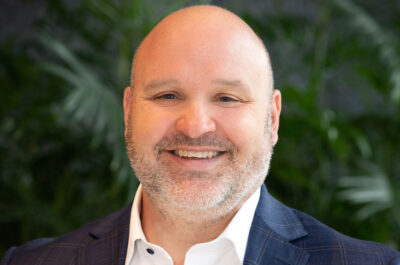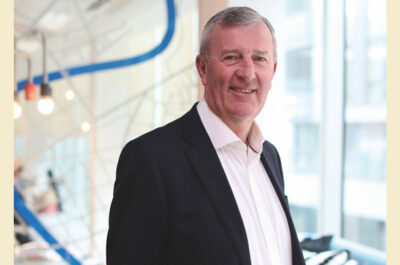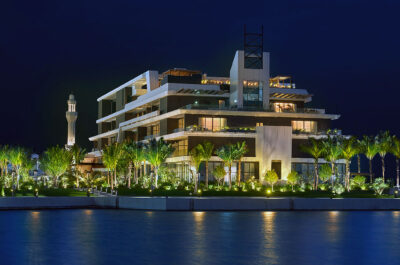Ireland`s tourism industry again proved its economic importance in 2004, with estimated all-time record numbers of 6.4 million overseas visitors during the year…
Ireland`s tourism industry again proved its economic importance in 2004, with estimated all-time record numbers of 6.4 million overseas visitors during the year and foreign exchange earnings of €4.2 billion. Combined with an estimated 10% growth in revenue from domestic trips, total tourism earnings are expected to have exceeded €5.2 billion, said Gillian Bowler, Chairman of Failte Ireland, the national tourism development authority, at its end of year review and outlook today. 2004 exceeded the previous record of 6.18 million overseas visitors in 2000 by 2.6%.
Our latest research shows that 97% of visitors say they would recommend a holiday in Ireland. The very high level of visitor satisfaction and the role of word of mouth in holiday decision-making shows that 2004 was another important year in building and securing the future for Ireland as a desirable destination continued Ms Bowler.
Tourism businesses` experience of 2004 depended on where they are and the sector in which they operate. The continuing divergence in experience between the east and west of the country is of major concern. For example, hotel occupancy rates in Dublin were 70% compared with a national average of 62%, and 56% in the north-west. This is without doubt the overriding strategic issue and it will take time to address it. There are tactical marketing initiatives and product development action plans that will be undertaken but there are also infrastructural needs, such as a western road corridor, that must be addressed to ensure spatial balance and that tourism benefits all corners of the country, Ms Bowler continued. The development of Shannon as a hub for European flights is a huge step in the right direction.
Almost two-thirds of visitors now rate Ireland well in terms of competitive access and as `easy to get to,` compared to just under half in 2001 – a significant achievement for an island destination. Investment in infrastructure pays dividends in tourism performance and in 2004 progress was made in particular on the National Conference Centre. The opportunity for Ireland in business tourism is considerable and is targeted to reach almost half a billion euro by 2007, she concluded.
2004`s performance was boosted by a recovery in the North American market (up 7%), continued growth in Irish people holidaying in Ireland (up 6%), and European markets like Italy and Spain (up 5% and 18%, respectively). Traditional markets such as the UK, France and Germany were less buoyant, with our largest, the UK, dropping by almost 1% to 3.5 million with consequent impact on touring holidays and activities such as angling and golf.
In terms of overseas revenue, the increase of almost two per cent is only just in line with inflation. Juxtaposed with the growth in visitor numbers this suggests some decline in expenditure per visitor. This is due in large part to the shift towards more frequent, shorter breaks and is putting pressure on margins in some tourism enterprises, said Shaun Quinn, Chief Executive of Failte Ireland. The availability of well-marketed attractions, activities and events serves not only to increase visitor numbers, but also to increase their individual spend during their stay.
There was evidence of structural as well as regional shifts in the tourism sector, with hotels benefiting most from the 5% increase in overseas holiday nights. The recent investment in hotel accommodation saw 900,000 bed nights added to Ireland`s stock in 2004 and this competition has impacted on guesthouses and B&Bs. Added to increasing costs of insurance and labour, and the rise in property values, some operators have chosen to exit. It is important to note however that the uniquely Irish B&B experience remains important especially for overseas visitors and Failte Ireland will be formulating an action plan for the sector in early 2005.
Failte Ireland`s Visitor Attitude Survey showed that Ireland`s core attributes of friendliness, beautiful landscape and relaxed pace of life are still regarded as important and are rated highly. Ireland is increasingly perceived as a `safe and secure` destination with 82% of visitors giving a high rating. However, macro consumer trends indicate an increasing appetite for `things to do`, as well as `places to see`. Failte Ireland`s product development programmes are targeted at ensuring the availability of a mix of high quality and enticing activities throughout the country, said Shaun Quinn.
Competitiveness
Visitors report Ireland`s high cost of living, poor roads and uncertain weather as the main disadvantages to a holiday here and while the number of visitors whose expectations were not met is small at 5%, this is attributed to the country being relatively expensive. While Ireland has never been a cheap destination, and visitors` perception of prices here did not change appreciably in 2004 over 2003, we must be vigilant about the fact that more than half regard the cost of living, eating and drinking in Ireland as more expensive than expected, said Shaun Quinn. We do well on the cost of access, accommodation and tourism-specific services such as car hire. This is a mark of how seriously the industry has taken competitiveness concerns. But the general cost of living in Ireland remains one of the highest in Europe and French, German and for the first time, US visitors, are commenting on it. With the weakening dollar and sterling, this poses an additional challenge to us in 2005.
Tourism Employment
Employment in the hospitality sector in 2004 was steady at 230,000, with four in five enterprises reporting similar levels to 2003. Dublin has the highest concentration of tourism employment, with one-third of the total, followed by the BMW region with 25% and the south-west which has 15%. In 2004, Failte Ireland trained just under 10,000 people for careers in hospitality and tourism.
Business Concerns
According to Failte Ireland`s regular Tourism Barometer, the main concerns of business people in tourism are:
- Cost of overheads (13% in 2004)
- Insurance costs (11% in 2004)
- Availability and retention of staff (5% in 2004)
A notable feature here is the reduction in concerns over insurance costs compared to 2003.
Surprisingly, the smoking ban has never registered highly on this measure. Further, 77% of overseas visitors are in favour of the ban on smoking with 26% saying they would be more likely to holiday in Ireland as a result and just 5% that they would be less likely to holiday here. Among Irish people, 70% were in favour of the smoking ban, with 12% saying it would make them less likely to holiday in Ireland.
Outlook for 2005
The current indicators are that 2005 should be a good year for Irish tourism in general, with a target of 5% growth in both domestic holidays and overseas visitors. Bringing about a more balanced regional spread means enhancing the promotion of tourism to the regions, improving the quality of internal, as well as air and sea access. Tourism businesses have a lot to look forward to, but are operating in one of the most challenging sectors in the Irish economy, said Shaun Quinn. As well as managing competitiveness issues, they are dealing with the regional and structural shifts in tourism and a tight labour force. The increasing importance of the Internet means individual businesses will need to take greater responsibility for their on-line marketing. Already three in four visitors to Ireland make their travel arrangements independently. This is a major change in a sector which traditionally relied on travel agents and tour operators as intermediaries with their consumers, but it offers great opportunities.
Domestic holidays and breaks will continue to underpin performance in 2005 and tourism operators are now actively targeting this segment. Failte Ireland is introducing a new integrated marketing campaign linking regions with activities and pushing consumers to web booking on ireland.ie. The campaign will incorporate television, radio, print and outdoor advertising with specific calls to action and strong regional messaging, he concluded.
Theodore is the Co-Founder and Managing Editor of TravelDailyNews Media Network; his responsibilities include business development and planning for TravelDailyNews long-term opportunities.










































































































































